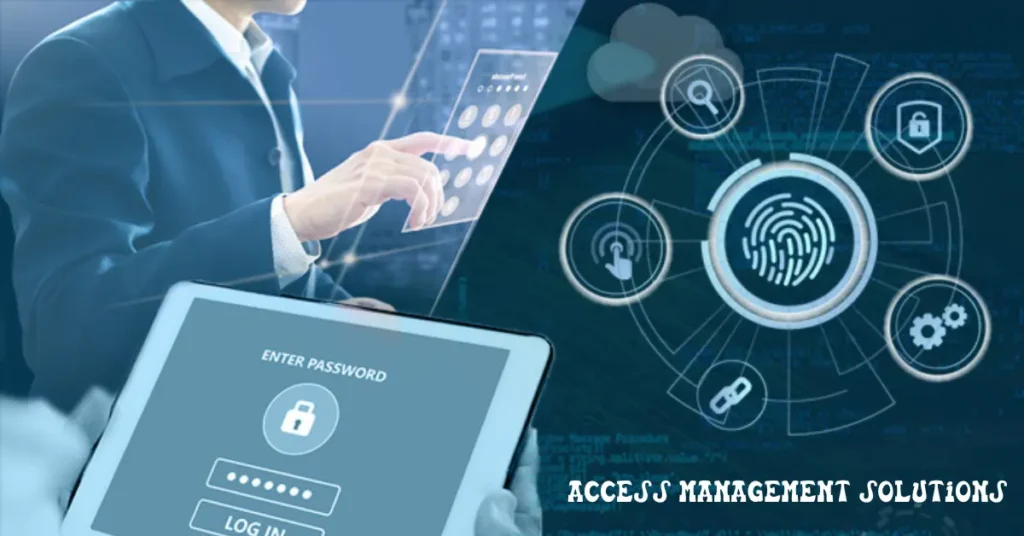In a digitally driven world, managing who has access to your business’s critical data and systems is more important than ever. Access management solutions are vital in safeguarding a company’s digital assets while ensuring smooth operations. Ensuring your employees have efficient and secure access to technology resources is key to staying ahead. Access management solutions range from simple password management systems to advanced management solutions. This article explores five significant ways access management solutions can benefit your business.
1. Enhanced Security and Reduced Risk of Data Breaches
One of the most significant benefits of access management solutions is enhanced security. By controlling who has access to sensitive information and systems, businesses can significantly reduce the risk of data breaches. Access management systems ensure that only authorized personnel have access to critical data, using methods like multi-factor authentication and regular password updates. This level of control protects the business from external threats while minimizing risk from potential internal vulnerabilities. Additionally, these systems can quickly revoke access in case of security threats, ensuring immediate response to potential breaches. They also provide detailed audit trails, making tracking and analyzing access patterns and identifying suspicious activities easier.
2. Streamlined User Access for Increased Productivity
Access management solutions streamline user access to various systems and resources within a company. With a centralized system, employees can quickly gain access to the tools and information they need without unnecessary delays. This efficient access reduces downtime and allows staff to focus more on their core duties, increasing overall productivity. Moreover, a streamlined access process simplifies onboarding for new employees, as they can be granted access to necessary resources promptly and securely. This centralized approach also reduces the burden on IT departments, as they can manage access from a single point rather than juggling multiple systems. Customizable access levels ensure that employees receive just the right amount of access that’s tailored to their specific roles and responsibilities.
3. Compliance With Regulatory Standards
For many businesses, complying with regulatory standards is a critical concern. Access management solutions help ensure that companies meet these requirements, especially regarding data protection and privacy. By having robust access controls in place, businesses can demonstrate their commitment to protecting sensitive information, which is often a requirement under laws like GDPR or HIPAA. This compliance helps avoid costly penalties and boosts the company’s reputation for taking data security seriously. Furthermore, regular updates to access management systems keep businesses ahead of evolving regulatory changes, ensuring ongoing compliance. These systems also simplify the process of reporting to regulatory bodies, making compliance less burdensome.
4. Detailed Access Logs for Monitoring and Reporting
Access management solutions provide detailed logs of user activities, offering valuable insights into who accessed what information and when. This level of monitoring is crucial for detecting any unusual or unauthorized access, enabling prompt response to potential security incidents. These logs also play an essential role in auditing and reporting, as businesses can provide concrete evidence of their access control measures and any actions taken in response to access-related events. The granularity of these logs can be instrumental in pinpointing the exact time and scope of a security breach, aiding in quicker resolution. They also serve as a deterrent to potential internal threats, as employees are aware that their access and activities are being monitored and recorded.
5. Managing Privileged Access for Critical Systems
Privileged access management solutions are a vital component of a comprehensive access management strategy. They specifically control and monitor access to your business’s most critical systems and data. Privileged accounts, such as those used by system administrators or IT personnel, have extensive access rights. Managing these accounts with a specialized solution ensures that privileged access is given only when necessary and is closely monitored to prevent misuse or unauthorized activities. This targeted approach to access management bolsters security, playing a critical role in maintaining the integrity of sensitive systems and data against both internal and external threats.
Conclusion
Implementing access management solutions offers substantial benefits for businesses. It enhances security, efficiency, compliance, monitoring, and access control. By embracing these solutions, companies can protect their vital data and systems and ensure smooth operations. It also contributes to maintaining a strong reputation for security and reliability. In an era where digital threats are constantly evolving, having an effective access management system is more than an advantage — it’s a necessity for safeguarding the future of your business.
